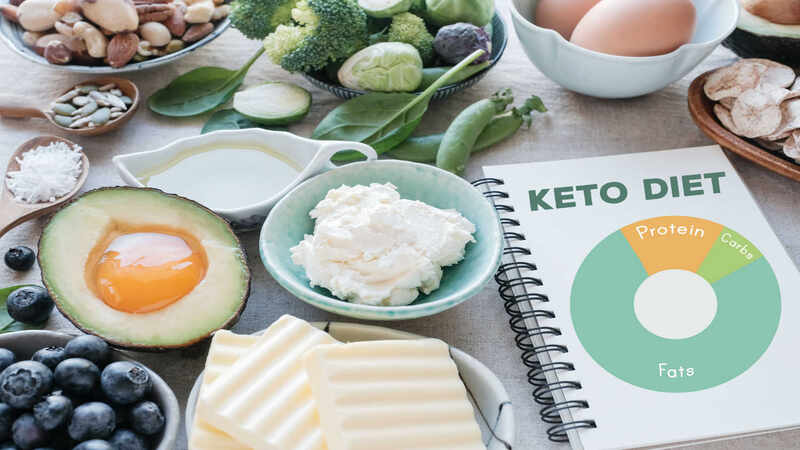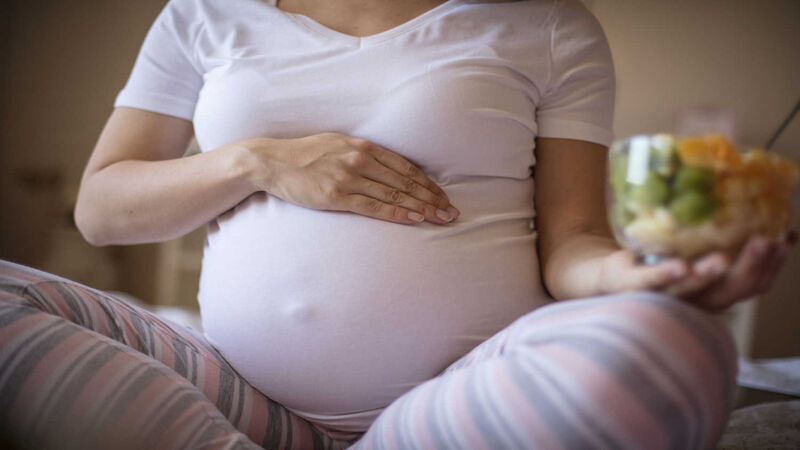
The ketogenic (keto) diet is a low-carbohydrate, high-fat, and adequate amount of protein diet that helps the body burn fat for energy. The diet has been popular in recent years for weight loss and other potential health benefits, such as improved blood sugar control, increased energy levels, and decreased inflammation. Having said that, is it safe to follow the keto diet while pregnant?
The keto diet while pregnant can have both pros and cons. It is important to talk to your healthcare provider before starting any new diet, especially during pregnancy. Pregnant women have unique nutritional needs that must be met for healthy fetal development. If you want to follow this, talk to your nutritionist, they can help ensure all your pregnancy needs are met while following the diet.
What is a Ketogenic Diet?
The human body usually gets fuel from burning the carbohydrates we get from our diet. But, a keto diet/ketogenic diet is a low-carbohydrate, high-fat diet that is designed to encourage the body to burn fat for fuel. The main goal of a ketogenic diet is to induce a state of metabolism called ketosis, where the body produces ketones from fat breakdown and uses them for energy.
A keto diet consists of good fats (a major part of the diet), proteins as a medium part, and low carbs. The exact macronutrient ratios may vary depending on the individual’s needs and goals, but the typical range is around 70-80% fat, about 20% protein, and about 10% carbohydrates.
Some foods that are commonly consumed on a ketogenic diet are fish, eggs, meat, seeds, nuts, some starch-free vegetables, healthy oils and fats, and dairy products (if tolerated). Foods that contain high carbohydrate ratios, such as grains, sugars, fruits, and most processed foods, are usually restricted or eliminated.
While a ketogenic diet can be effective for weight loss and certain health conditions, it’s important to talk to a healthcare professional before starting this diet, especially when pregnant.
Is it Safe to Follow Keto Diet While Pregnant?

It is generally not recommended to follow a ketogenic diet while pregnant, as it may not provide adequate nutrients for both the mother and the developing fetus.
During pregnancy, the body requires additional nutrients and energy to support the growth and development of the fetus. Carbohydrates, for example, are an important source of energy for both the mother and the fetus, and cutting them out of the diet can be risky.
Additionally, a ketogenic diet may increase the risk of developing ketosis, a condition where the body produces high levels of ketones in the blood. While ketosis is generally safe for healthy individuals, it can be harmful to a developing fetus, as high levels of ketones may interfere with fetal brain development.
Furthermore, certain foods that are restricted to a ketogenic diet, such as fruits and whole grains, are important sources of vitamins, minerals, and fiber that are essential for a healthy pregnancy.
If you are pregnant or planning to become pregnant, it’s important to talk to your healthcare provider about your dietary needs and make sure you are getting adequate nutrients for both you and your developing baby. The Keto diet has side effects that may affect the growth of the fetus.
Side Effects of the Keto Diet While Pregnant
A keto diet is not fully safe for pregnant women. Because pregnancy is a time when you need balanced nutrition that helps your baby grow.
Here are a few side effects, if you follow the keto diet while pregnant.
1. Nausea and Vomiting
During the first trimester of pregnancy, morning sickness is a common symptom for many women. Some women’s nausea and vomiting may get worse on a ketogenic diet.
2. Headaches
A keto diet may cause headaches, which can be worsened during pregnancy due to hormonal changes.
[Read : Headaches And Pregnancy]
3. Dizziness and Fatigue
A keto diet can cause low blood sugar, resulting in dizziness and fatigue. These symptoms can be dangerous during pregnancy and may put both the mother and baby at risk.
Risks of Keto Diet During Pregnancy

Following a keto diet during pregnancy may pose several risks to both the mother and the developing fetus, including
1. Nutrient Depletion
A ketogenic diet may not provide enough of certain nutrients, such as folic acid, iron, and calcium, which are essential for a healthy pregnancy.
2. Increased Risk of Ketosis
A ketogenic diet can increase the risk of developing ketosis, a condition where the body produces high levels of ketones in the blood. High levels of ketones can be harmful to a developing fetus, as they may interfere with fetal brain development.
[Read : Fetal Development – Know Everything About Your Baby’s Brain and Nervous System]
3. Reduced Fetal Growth
Carbohydrates are an important source of energy for both the mother and the fetus. Cutting out carbohydrates from the diet can lead to reduced fetal growth and a low birth weight baby.
4. Increased Risk of Birth Defects
Folic acid is a nutrient that is essential for fetal development. Low levels of folic acid during pregnancy can increase the risk of neural tube defects, such as spina bifida.
Keto diets during pregnancy have major risks to the growth and development of the fetus. It may result in birth-born diseases, malfunction, and improper development of the organs. It’s recommended to talk to a healthcare provider before making any significant changes to the diet during pregnancy.
Advantages of Keto Diet During Pregnancy
There are no known advantages to following a ketogenic diet during pregnancy. As mentioned earlier, a ketogenic diet may pose several risks to both the mother and the developing fetus, including nutrient deficiencies, reduced fetal growth, an increased risk of birth defects, and gestational diabetes.
It’s important to follow a follow a balanced diet that provides all the necessary nutrients for a healthy pregnancy, including carbohydrates, proteins, healthy fats, vitamins, and minerals. A balanced diet can help reduce the risk of pregnancy complications and ensure the healthy development of the fetus.
Disadvantages of Keto Diet for Pregnant Women

There are several disadvantages to following a ketogenic diet during pregnancy. Here are some of them
- Constipation
- Gestational diabetes
- Dehydration
- Reduced fetal growth
It’s recommended to talk to your nutritionist before making major changes to the diet during pregnancy. They can provide individualized advice and guidance on how to maintain a healthy diet during pregnancy based on your specific needs and medical history.
A Keto diet sets the body at ketosis. A condition in which the body produces high levels of ketones in the blood. It may harm the development of the fetus and hence is not recommended. A balanced diet is needed by the mother for a healthy pregnancy.
FAQ’s
1. Is the Keto Diet Safe if You Have Gestational Diabetes?
No, the keto diet is not safe if you have gestational diabetes. If you are pregnant, it means you are nourishing a life inside, which requires every nutrition. Your body needs carbohydrates at the time of pregnancy, which is an important source of energy and also necessary for the growth and development of your baby.
Read Also: Paleo Diet During Pregnancy – Is It Safe?

